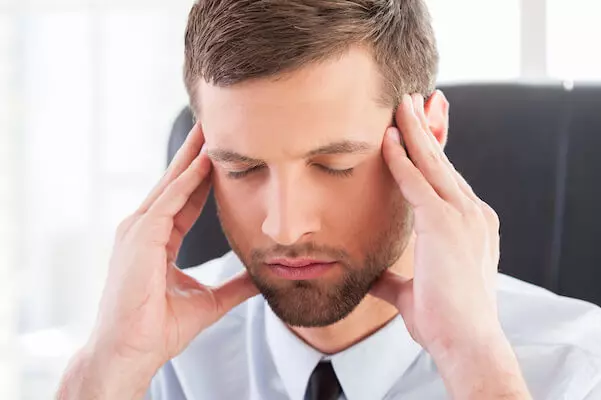
You or someone you know may snore while sleeping. You may find yourself wondering why your husband or wife snores so loud? While most people regard snoring as a natural bodily function, it could also indicate other health complications. Snoring is the first sleep apnea indicator, a condition that develops when your airway is blocked while sleeping. Unfortunately, your body and brain fail to receive the proper oxygen needed to restore your body and prepare for the next day. With advanced training and over 30 years of experience, patients trust the expertise of Dr. Brian McDowell for sleep apnea evaluation in the Fitchburg area.
What happens when you have sleep apnea?
During the night, sleep apnea sufferers in the Fitchburg area may experience brief but frequent interruptions in breathing due to a sleep-related respiratory condition. Extreme occurrences have been documented, with individuals stopping breathing dozens or more times per hour. Our Fitchburg sleep apnea specialist will explain that although several sleep apnea forms exist, obstructive sleep apnea (OSA) is by far the most prevalent. In OSA cases, the airway becomes physically blocked during sleep, which causes snoring and is a predominant symptom of obstructive sleep apnea.
Excessive daytime sleepiness, awakenings in the middle of the night with gasping or choking sounds, morning dry mouth, sore throat, and headaches are some symptoms often associated with sleep apnea. Because of the interconnected nature of your oral and general health, this illness may have far-reaching consequences, especially if untreated.
Sleep Apnea Impact On Teeth and Gums
Sleep apnea may lead to many dental problems. When a person has sleep apnea, they often have to breathe through their mouth all night, which can cause dry mouth. In dry mouth conditions, bacteria can run rampant and cause extensive damage to tooth enamel. As a result, Fitchburg patients may have bad breath or plaque buildup, putting them at greater risk for gingivitis and periodontal gum disease. In addition, our Fitchburg sleep apnea dentist share more conditions sleep apnea may contribute to:
• Damaged enamel
• Lip and mouth ulcers
• A surge in tooth decay
• Scalloped-edge tongue
• Grinding teeth causing excessive wear and tear
Sleep Apnea Impact On Overall Health
Those suffering from sleep apnea may have lower oxygen levels than usual. As a result, you may experience increased heart rate and blood vessel constriction as your body reacts to the stress. Several heart problems may result from a lack of oxygen, including hypertension, an elevated heart rate, inflammation, and stress on the heart. Additionally, sleep apnea may cause a variety of significant health problems, including but not limited to a stroke, hypertensive disorders, heart attack, asthma, or COPD.
Since sleep apnea may cause other severe illnesses, we suggest that you schedule an appointment with our dentist in Fitchburg as soon as possible if you experience any symptoms. Contact Brian McDowell, DDS, for an evaluation and testing for proper diagnosis to begin controlling the the effects of sleep apnea.
Schedule A Sleep Apnea Evaluation
If you notice any signs of sleep apnea, schedule a consultation with our advanced-trained Fitchburg dentist, Dr. Brian McDowell for a sleep apnea evaluation at
978-252-2049. For over 30 years, Dr. McDowell has helped patients in the Fitchburg and surrounding areas such as Leominster, Westminster, and Gardner, MA relieve sleep apnea symptoms with oral appliance therapy.
 You or someone you know may snore while sleeping. You may find yourself wondering why your husband or wife snores so loud? While most people regard snoring as a natural bodily function, it could also indicate other health complications. Snoring is the first sleep apnea indicator, a condition that develops when your airway is blocked while sleeping. Unfortunately, your body and brain fail to receive the proper oxygen needed to restore your body and prepare for the next day. With advanced training and over 30 years of experience, patients trust the expertise of Dr. Brian McDowell for sleep apnea evaluation in the Fitchburg area.
You or someone you know may snore while sleeping. You may find yourself wondering why your husband or wife snores so loud? While most people regard snoring as a natural bodily function, it could also indicate other health complications. Snoring is the first sleep apnea indicator, a condition that develops when your airway is blocked while sleeping. Unfortunately, your body and brain fail to receive the proper oxygen needed to restore your body and prepare for the next day. With advanced training and over 30 years of experience, patients trust the expertise of Dr. Brian McDowell for sleep apnea evaluation in the Fitchburg area.
 You or someone you know may snore while sleeping. You may find yourself wondering why your husband or wife snores so loud? While most people regard snoring as a natural bodily function, it could also indicate other health complications. Snoring is the first sleep apnea indicator, a condition that develops when your airway is blocked while sleeping. Unfortunately, your body and brain fail to receive the proper oxygen needed to restore your body and prepare for the next day. With advanced training and over 30 years of experience, patients trust the expertise of Dr. Brian McDowell for sleep apnea evaluation in the Fitchburg area.
You or someone you know may snore while sleeping. You may find yourself wondering why your husband or wife snores so loud? While most people regard snoring as a natural bodily function, it could also indicate other health complications. Snoring is the first sleep apnea indicator, a condition that develops when your airway is blocked while sleeping. Unfortunately, your body and brain fail to receive the proper oxygen needed to restore your body and prepare for the next day. With advanced training and over 30 years of experience, patients trust the expertise of Dr. Brian McDowell for sleep apnea evaluation in the Fitchburg area.


